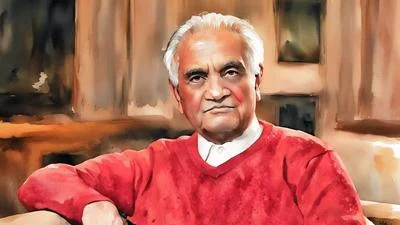China’s rise as a military power has reshaped the United States’ strategic calculations. The Chinese Communist Party’s modernization of the People’s Liberation Army (PLA) is causing new diplomatic and defense community concerns.
In their new book, China’s Quest for Military Supremacy, Joel Wuthnow and Phillip Saunders offer an analysis of the PLA’s structure, strategy, and evolution under the leadership of Xi Jinping. They provide a roadmap for understanding a military that operates under a political system fundamentally different from Western democracies.
Wuthnow is a senior research fellow at the Center for the Study of Chinese Military Affairs at the National Defense University’s Institute for National Strategic Studies, and an adjunct professor at Georgetown University. Saunders directs the same center and is a distinguished research fellow at the Institute, also serving as an adjunct instructor at Johns Hopkins University.
Wuthnow traces his interest in China to his childhood, when his father served as an advisor to the Taiwan Air Force and the family lived on the island. “They would do the language tapes, and I would speak along with them,” he says. “So I think that's where some of the origin comes in.” Later, his career in the Air Force and graduate studies solidified his focus on Chinese military issues.
Saunders first visited China in 1993 as a middle school student and became interested in national security when he saw the implications of a rising China. “People of my generation were starting to learn Chinese,” he says. “I saw it as more of a potential problem.” Rather than follow the post-9/11 counterterrorism trend, he studied China’s military development. “The PLA was changing so dramatically and so quickly, and it became an object of intellectual fascination.”
Both scholars say the field of PLA studies has changed significantly since the 1990s. “It was easy,” Wuthnow says. “You just said the Chinese military has a limited capability. As long as you remembered that word ‘limited,’ you were pretty good.” But by the mid-1990s, after the Taiwan Strait crisis, it became clear that the PLA was transforming. “The capabilities that China was developing really demanded attention,” he says.
Saunders says 1993 was a crucial turning point, when “China really started to change its military strategy.” He says the Persian Gulf War showed China “that the character of war had fundamentally changed.” Saunders lists a series of other shocks, including the Taiwan Strait crisis, the bombing of the Chinese embassy in Belgrade, and the rise of China’s global economic interests, that drove Beijing to invest in military modernization.
The advent of Xi Jinping marked a further acceleration. “He fundamentally reorganized and restructured the PLA… something none of his predecessors could do,” Saunders says. According to Wuthnow, Xi sees the military as “both a symbol of great power status and a tool to make some of the changes that China is trying to achieve.”
Their book reminds us that the PLA does not report to the Chinese government but to the Communist Party. “They don’t actually work for the Chinese government,” Wuthnow says. “The political commissar is there to make sure the commander does what the party wants.” That dual control creates ongoing tension.
Promotion in the PLA is more about political loyalty than warfighting competence. “They don’t like iconoclasts, they don’t like big risk takers,” Saunders says. “What they don’t have is really that kind of joint expertise that we cultivate in our system.” This may have real-world implications, for example, in a potential Taiwan conflict. “You can have all the capabilities in the world,” Saunders says, but “if you lack command proficiency, that’s really the weakness.”
Both authors say that China’s methodical military modernization has been impressive. “They’ve waited until their defense industry could build a good fighter, then they mass produced it,” Wuthnow says. “But a military is more than hardware—it’s people, training, morale.”
The authors point out a cultural disadvantage in the PLA’s lack of adaptability. “The party never fully trusts people,” Saunders says. “They can never fully embrace mission command.” The culture discourages decision-making in the field. “If you're out on the battlefield, you're not going to execute [a new idea] because you're going to be the one who is facing the punishment.”
Their book sheds new light on the PLA’s nuclear expansion. “It's not a small, gradual increase,” Wuthnow says. “It's a huge increase, and we’re still trying to understand why.” Despite Xi’s efforts to consolidate power, the authors point to the recent purging of entire leadership groups as evidence of continued internal distrust and instability.
“There just isn’t a lot of good, readable, accessible materials on this,” Wuthnow says. China’s Quest for Military Supremacy is an attempt to be a foundational resource for policymakers, military officers, and informed citizens alike.
“This is not a book of advocacy,” Wuthnow says. “It’s a book of understanding.”









